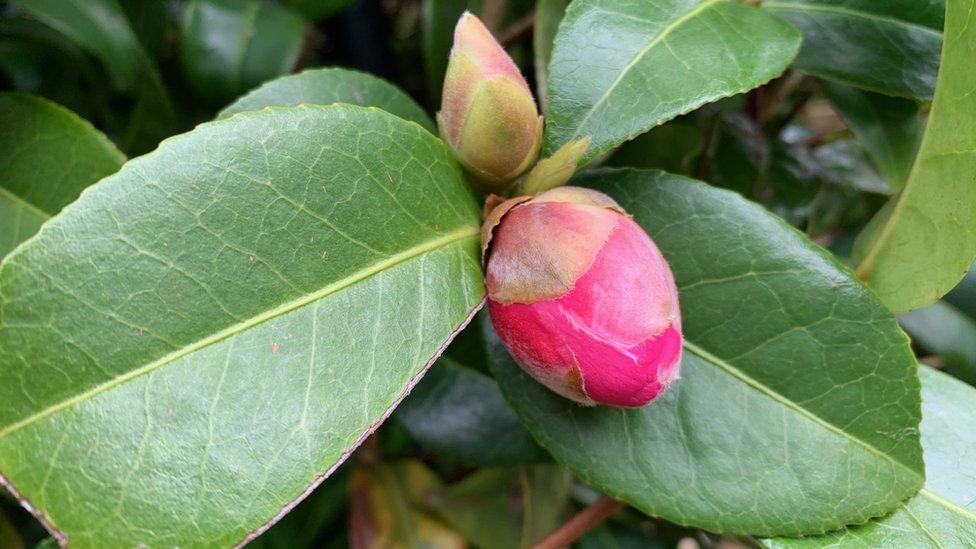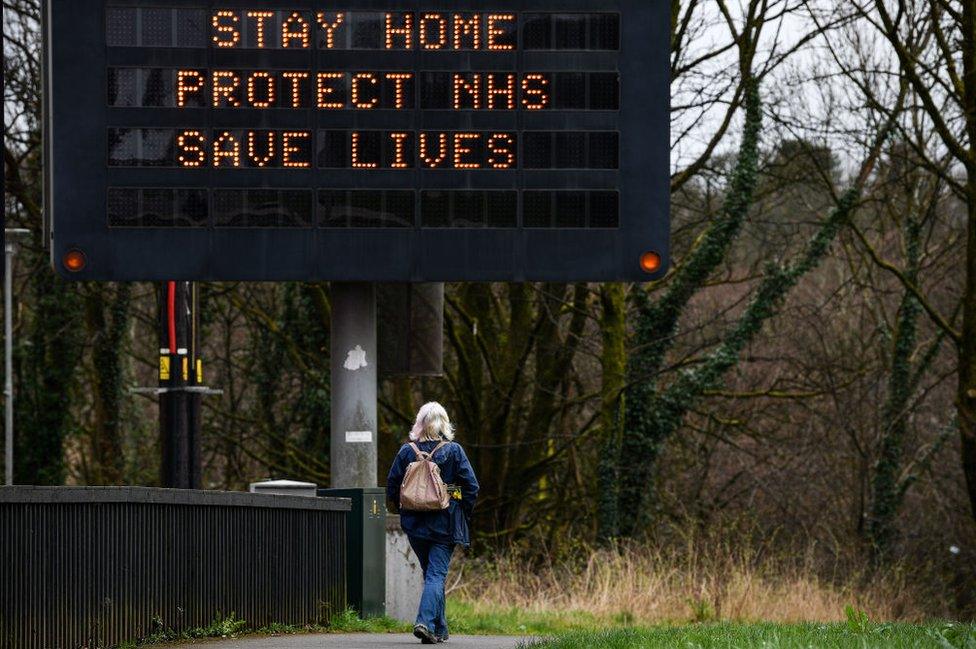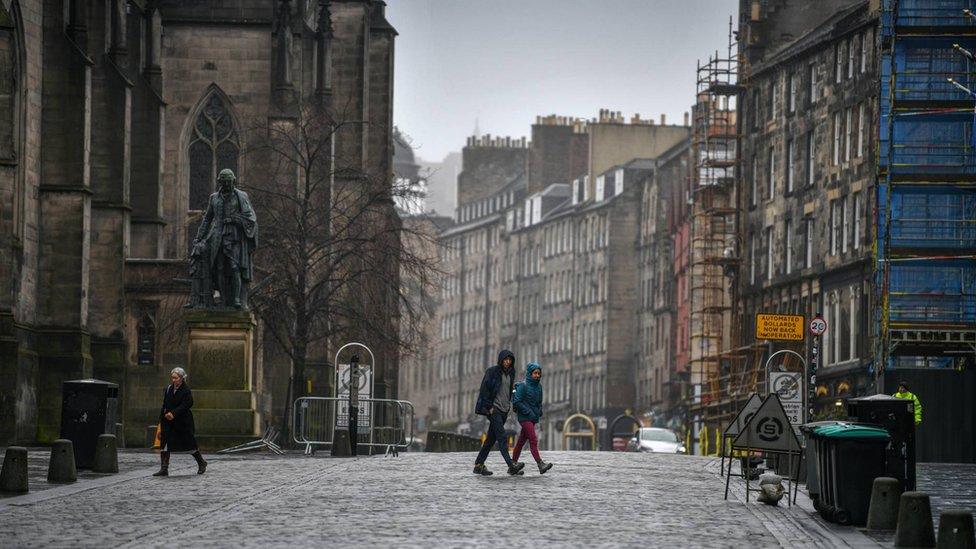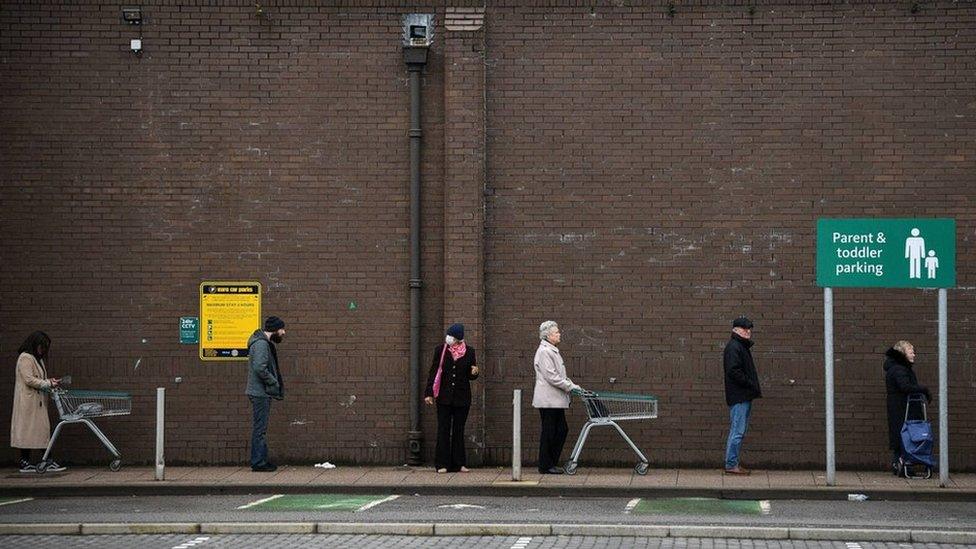Considering the impact of the coronavirus crisis
- Published

I bring you news. There is an insolent single bud on the camellia in my garden. The herald of a pinkish red flower.
Whisper it, but the camellia, as a genus, can be somewhat thrawn.
One year, a carnival of colour. The next, maybe a dozen gloomy blooms.
This year, perhaps, portends well. In the garden, at least. Elsewhere? You know, you know.
This camellia, firmly planted in ericaceous soil, regularly draws my attention on the few occasions when I have an opportunity to observe my garden.

When it is not raining or I am not elsewhere, broadcasting to an astonished nation.
For one thing, the flowers can be stubbornly beautiful. For another, the plant was gifted to us by a close family friend. It has a history.
I observed the new bud as British Summer Time deprived us of an hour's sleep. Not, I would surmise, an uncommon experience for all of you at the moment.
A little sub-Proustian, I admit, but I meandered into a series of recollections and thoughts as I observed the nascent flower. Each connected to the current crisis.
Firstly, family - and especially the youngest member. How to explain what is happening to a three-year-old? Phone calls, even with visual contact, seem hideously inadequate.
Then, our remarkable collective compliance. Through my gaunt, wintry hedge, I spotted the shapes of people walking by.
Pursuing their daily, permitted dose of exercise, with Scottish determination. Each a statutory two metres distant from passing neighbours. Many walking down the middle of a road devoid of traffic.

People keeping their distance on the streets of Edinburgh
Even the dogs seemed to obey.
Then wider questions. This was Sunday. I thought of those who might be at prayer; privately, in the enforced absence of collective worship.
Would they keep it simple and personal? Or would Augustinian thoughts intrude? The ancient question of evil and pestilence in a divinely monitored world.
Thoughts, of course, anent the safety of others. A rising tide of infection and fatality. When might it abate?
The efforts to slow the spread, commendable in themselves. But with consequences. Consequences.
I think of the statement at a news conference, expressing medical delight at empty shops, streets and transport.
Of course, I understand. I get the concept. I applaud the endeavour - and comply, zealously.

Shoppers wait outside a supermarket in Glasgow
But that very emptiness represents a viral stranglehold on society and the economy. It will have positive results in terms of the disease but it is not intrinsically a good thing.
Then another passing phrase, at a Downing Street news conference. A question from a remotely connected journalist.
It is this: "Might the cure be worse than the disease itself?"
Again, I grasp the health strategy. Trust me, I get it. But what will be left of the economy, of our revenue raising functions, once this is over?
More generally, will there be a different path to pursue, perhaps a resistance to globalisation? Myself, I strongly doubt that but the thought arises.
As do other, relatively trivial matters. Social and sporting life. My own team, stuck on pause at the top of the league (OK, the wrong league, but still). What will happen to all that?
Ach, cheer up, Brian. Get over yourself. Consider the camellia.
